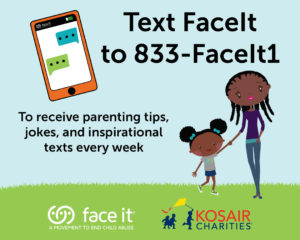
24 Apr Finding mental health support for your child -here’s how to go about it
By Casey Lane, Intern It can be an especially vulnerable, scary, and confusing time when you suspect or know that you need to seek mental or behavioral health for your child. Where do you even begin?
It can be an especially vulnerable, scary, and confusing time when you suspect or know that you need to seek mental or behavioral health for your child. Where do you even begin?
Crisis
If your child is currently experiencing or at risk of experiencing a mental health crisis – or your child is at risk of harming themselves or others, or if their emotions and behaviors seem out of control – there are a few considerations and ways to take action for everyone’s safety:
Immediate Danger = Emergency
If you feel your child’s or someone else’s life is in immediate danger, call 911 and let them know your child is experiencing a mental health crisis, or take your child to the nearest emergency room if possible. If you are unsure if the current crisis requires 911, first responders, or an emergency response, call 988 for Kentucky’s Suicide & Crisis Lifeline and they can help guide you further and alert first responders as needed.
No Immediate Danger = Crisis Safety Planning and Establishing Ongoing Supports
If you feel your child is in a crisis, but are confident that no one is in immediate danger, a call or text to 988 or to one of Kentucky’s Community Mental Health Centers (CMHCs) may be in order. Each Community Mental Health Center has its own crisis line that can be found by county and staff can assess the situation, call for a Mobile Crisis Unit to come to you as appropriate or available, instruct you to walk-in for your child to be evaluated immediately, or schedule a future appointment as appropriate.
Even if you don’t feel your child is currently in a crisis, it’s important to know who you would contact in the event of a crisis and have some ideas of where you could take your child to be assessed. Remembering 988 or having the crisis line to your local Community Mental Health Center may help you feel more prepared.
Even outside of a crisis, the act of locating appropriate mental and behavioral health services for your child can feel daunting.
One beneficial first step may be to consult with your child’s pediatrician or primary doctor as they may be able to do some preliminary assessments and refer to a mental or behavioral health provider or clinic that they trust and recommend.
Another beneficial first step may be to consult with the school counselor or social worker for your child’s school as they may also have insights, referrals, or services to offer. They may also be able to suggest implementing added supports for your child at school.
Your insurance provider or Medicaid Managed-Care Organization should be able to provide listings of some mental health providers or clinics in your area. If your insurance or Medicaid plan offers case management, a case manager may have insights to provide you recommendations for providers that are more tailored to your child’s specific needs. You can reach out to your insurance by calling the member services number on the back of your ID card.
As mentioned when discussing crisis situations, Community Mental Health Centers can be a great resource for immediate care, but they also provide ongoing therapy, psychiatry, and additional services. You can look up your county’s Community Mental Health Center and browse their individual website for more information on their programs and services.
You may also find the Substance Abuse and Mental Health Services Administration’s (SAMHSA) Find Treatment tool helpful, as it can be filtered by categories including facility type, age groups accepted, etc.
Google, social media, or other online searches for “pediatric mental health,” “pediatric therapy,” or even phrases like “counseling center” in your area may also suffice and allow you to browse websites for clinics and practices near you, but of course you will also want to check to ensure they take your insurance. Many mental health service agencies provide profiles about their therapists on their website, allowing you to put a picture to the name and learn about that individual provider’s qualifications and expertise. For older children, adolescents, and teens, being able to browse information about providers and request a specific therapist may help them feel more in control and empowered in their mental health care.
When searching for therapy services, you may want to be mindful of your child’s racial and gender identity, trauma background, and individual needs. There is evidence to suggest better outcomes when therapy clients are matched with a therapist that also represents their race, ethnicity, and gender. This might not always be easy to attain, especially in rural or other areas where diversity in mental and behavioral health services are limited. Further, children with unique behavioral needs, such as Autism, as well as children with complex trauma histories, such as foster care, adoption, and/or abuse, may be best supported by therapists with specialized experience and training in these areas.
Please also prioritize your own self-care and seek your own support! This may mean seeking individual therapy services for yourself or leaning on more natural supports like family and friends. Many Community Mental Health Centers also have programs for Family Peer Support, which consists of other parents with lived experience of having a child with mental and behavioral health conditions and concerns who are trained to provide specialized support to families facing similar issues.




